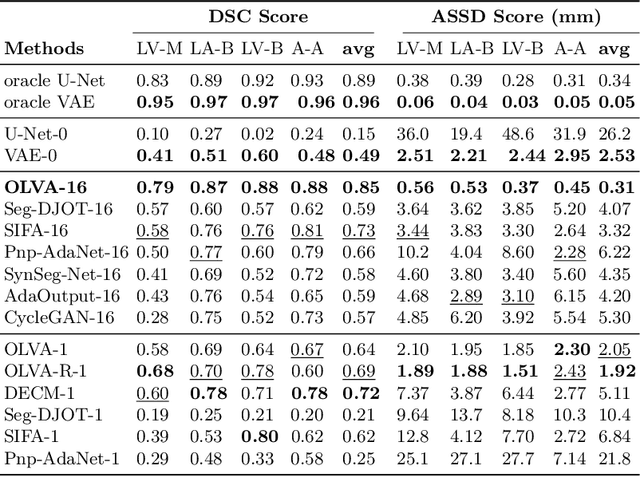Optimal Latent Vector Alignment for Unsupervised Domain Adaptation in Medical Image Segmentation
Paper and Code
Jun 15, 2021



This paper addresses the domain shift problem for segmentation. As a solution, we propose OLVA, a novel and lightweight unsupervised domain adaptation method based on a Variational Auto-Encoder (VAE) and Optimal Transport (OT) theory. Thanks to the VAE, our model learns a shared cross-domain latent space that follows a normal distribution, which reduces the domain shift. To guarantee valid segmentations, our shared latent space is designed to model the shape rather than the intensity variations. We further rely on an OT loss to match and align the remaining discrepancy between the two domains in the latent space. We demonstrate OLVA's effectiveness for the segmentation of multiple cardiac structures on the public Multi-Modality Whole Heart Segmentation (MM-WHS) dataset, where the source domain consists of annotated 3D MR images and the unlabelled target domain of 3D CTs. Our results show remarkable improvements with an additional margin of 12.5\% dice score over concurrent generative training approaches.
 Add to Chrome
Add to Chrome Add to Firefox
Add to Firefox Add to Edge
Add to Edge